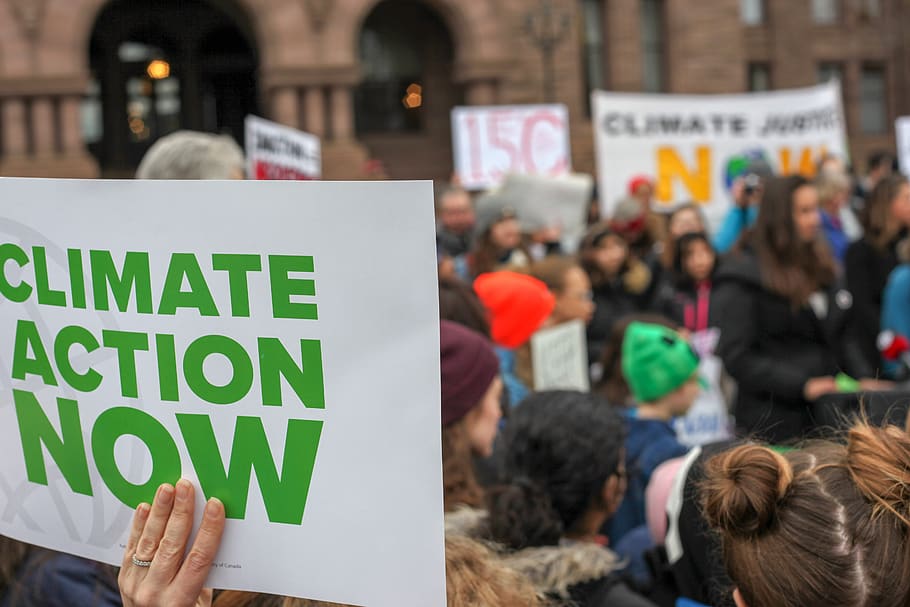|
a cura di Laura Schella In the last decades climate change has become a dominant issue in politics, both at the national and international level. The consequences produced by climate change have still to be fully measured and understood, nonetheless it is evident that problems related to increasing temperatures and loss of biodiversity are and will for sure impact individuals, especially in underdeveloped regions where access to resources is scarce. Studies show that climate change is a multiplier of already existing social and economic problematics: as noted by Kameri-Mbote, climate change might seem of little importance for people living in underdeveloped countries but given its catalytic nature it further aggravates pre-existing social and economic inequalities, and consequently it further jeopardises the process of economic and social development. Women are among the individuals most affected by climate change. From the ‘90s, international agreements and norms have started to recognize the importance of gender equality as a precondition to eradicate poverty and design an effective pathway towards sustainable development. Gender equality is directly linked with the concept of green economy that many scholars consider as the only possible way to achieve a more sustainable and equal distribution of economic resources together with environmental justice. Nonetheless the relation between gender equality and climate change is still very much debated and in specific sectors it still lacks a systematic analysis. The aim of this article is to provide a general perspective on this issue and draw some political considerations. In most cases climate change issues are presented as affecting the world population without much distinction of regions and their economic capabilities. At the same time, it is important to consider that climate change does not affect individuals in the same way, on the contrary it strengthens social disparities and unequal access to economic resources. This explains why women are affected differently than men by climate change. At the same time recognition of women vulnerability must be accompanied by the understanding that women are not just particularly exposed to risks related to climate change, but they also engage in activities beneficial to the environment. Consequently, in discussions regarding climate change and its consequences women voice must be included and clearly heard. The issue of women role in climate change is complex and multifaced. Policies designed to tackle climate change problems need to take into consideration existing inequalities and, while recognising women role as “agents of change”, do not risk aggravate their burden. Climate change can further erode access to already limited resources. According to recent studies, women usually tend to have limited access to all type of assets and there is evidence that regions where climate change has increased economic inequalities and brought further levels of social tensions there is an increase in gender-based violence. As Fisher and Mohun highlight in their report it’s usually women and girls that suffer the most from crisis and that are forced to cope with increased gender-based violence, early marriage and loss of education. Furthermore, most of the time women not only have limited access to resources but they are victims of discrimination, cultural and social norms as well as prejudices and restricted rights. Given the multifaced relations between climate change and gender equality, it is not surprising that in certain cases women can also take advantage of transformations and challenges brought by climate change and assume non-traditional roles and possibly change their status both in society and in the family. This process of adaptation to climate change can push for social transformations but it’s unlikely that without specific policies aimed at reducing gender inequalities, women can demolish by themselves centuries of old gender boundaries. Crisis generally show that gender boundaries are resilient and that emancipation in certain sectors can be accompanied by new forms of oppression. An economic sector deeply affected by climate change is agriculture. Climate change and its consequences, such as increasing temperatures and extreme weather events, force farmers to diversify their crops and look for alternative ways to access natural resources. Data show that women produce around 60-80% of the food in underdeveloped countries but they only own 10-20% of agricultural land. Furthermore, since men tend to move to urban areas to look for better employment opportunities, in recent years women role in agricultural has become more and more relevant. Agriculture is again another economic sector where women are not just more vulnerable than men to climate change, but they also play a decisive role in the adaptation process to climate change and play a key role in guaranteeing food security to their communities. As already said, it is complex to understand how climate change and gender equality goals can be harmonized. When promoting transformation to a greener economy, policies tend to underestimate the social impact of environmental policies and this way they risk to further aggravate social inequalities. Gender equality is undeniably a fundamental goal to be achieved in the path towards sustainable development. As the United Nations Millennium Development Goals note “gender equality is both a goal and a condition for combatting poverty, hunger and disease”. It is precondition and, at the same time, an indicator of a type of economic development that is centred on people and that is capable to effectively guarantee equal access to resources to every part of society.
|
|
||||||

